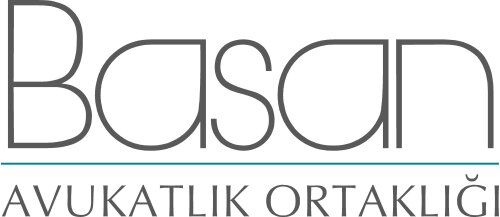Best White Collar Crime Lawyers in Cankaya
Share your needs with us, get contacted by law firms.
Free. Takes 2 min.
List of the best lawyers in Cankaya, Turkey
About White Collar Crime Law in Cankaya, Turkey:
White-collar crime in Cankaya, Turkey, primarily includes fraud, embezzlement, tax evasion, and other financial crimes committed by individuals in professional settings. Despite the non-violent nature of these crimes, they can have severe repercussions, including significant financial losses and damage to corporate reputations. In recent years, Turkish legal authorities have intensified efforts to penalize and prevent such incidents, reflecting the global trend towards more stringent enforcement of white-collar crime laws.
Why You May Need a Lawyer:
White-collar crimes involve complex legal issues that require individual expertise and understanding. Anyone facing allegations of such activities needs a robust defense to protect their rights and ensure fair trials. On the other hand, corporations may require lawyers to conduct internal investigations to identify potential violations and develop preventive strategies. In addition, victims of white-collar crime may need legal assistances to recover their losses.
Local Laws Overview:
The Turkish Penal Code includes specific provisions governing white-collar crimes. Laws about bribery, fraud, embezzlement, and tax evasion, amongst others, carry prison sentences and fines. The severity of the penalties corresponds with the gravity of the offense, including the money or assets involved and the extent of any resulting economic damage. Turkish laws also permit court-ordered measures to seize or confiscate assets linked with criminal activities.
Frequently Asked Questions:
What is considered a white-collar crime in Turkey?
Turkish law defines a range of activities as white-collar crimes, including fraud, embezzlement, tax evasion, insider trading, bribery, and financial statement fraud.
What are the penalties for white-collar crimes in Cankaya, Turkey?
Penalties for white-collar crimes in Turkey vary based on the nature and scale of the offense but may include imprisonment, hefty fines, and asset confiscations.
Are the penalties stricter if the crime involves a public official?
Yes, Turkish law imposes harsher penalties when white-collar crimes involve public officials, as these offenses are considered particularly harmful to public trust.
Can a corporation be held accountable for white-collar crimes?
In addition to individual employees or managers, corporations themselves can be held liable for white-collar crimes under Turkish law, particularly if they fail to prevent these offenses.
What are my rights if I am accused of a white-collar crime?
Individuals accused of white-collar crimes have the right to a fair trial, including the right to legal representation, the presumption of innocence until proven guilty, and the right to appeal a sentencing decision.
Additional Resources:
Relevant bodies for further information include the Turkish Ministry of Justice, the Supreme Court, and the Financial Crimes Investigation Board. Many reputable law firms specializing in white-collar crimes also provide useful online resources to familiarize yourself with this complex area of law.
Next Steps:
If you need legal assistance with a white-collar crime matter in Cankaya, Turkey, the first step is to consult with a qualified lawyer specialized in this field. They will guide you through the necessary procedures, represent your interests, and help you navigate the intricate world of Turkish white-collar crime law.
Lawzana helps you find the best lawyers and law firms in Cankaya through a curated and pre-screened list of qualified legal professionals. Our platform offers rankings and detailed profiles of attorneys and law firms, allowing you to compare based on practice areas, including White Collar Crime, experience, and client feedback.
Each profile includes a description of the firm's areas of practice, client reviews, team members and partners, year of establishment, spoken languages, office locations, contact information, social media presence, and any published articles or resources. Most firms on our platform speak English and are experienced in both local and international legal matters.
Get a quote from top-rated law firms in Cankaya, Turkey — quickly, securely, and without unnecessary hassle.
Disclaimer:
The information provided on this page is for general informational purposes only and does not constitute legal advice. While we strive to ensure the accuracy and relevance of the content, legal information may change over time, and interpretations of the law can vary. You should always consult with a qualified legal professional for advice specific to your situation.
We disclaim all liability for actions taken or not taken based on the content of this page. If you believe any information is incorrect or outdated, please contact us, and we will review and update it where appropriate.












